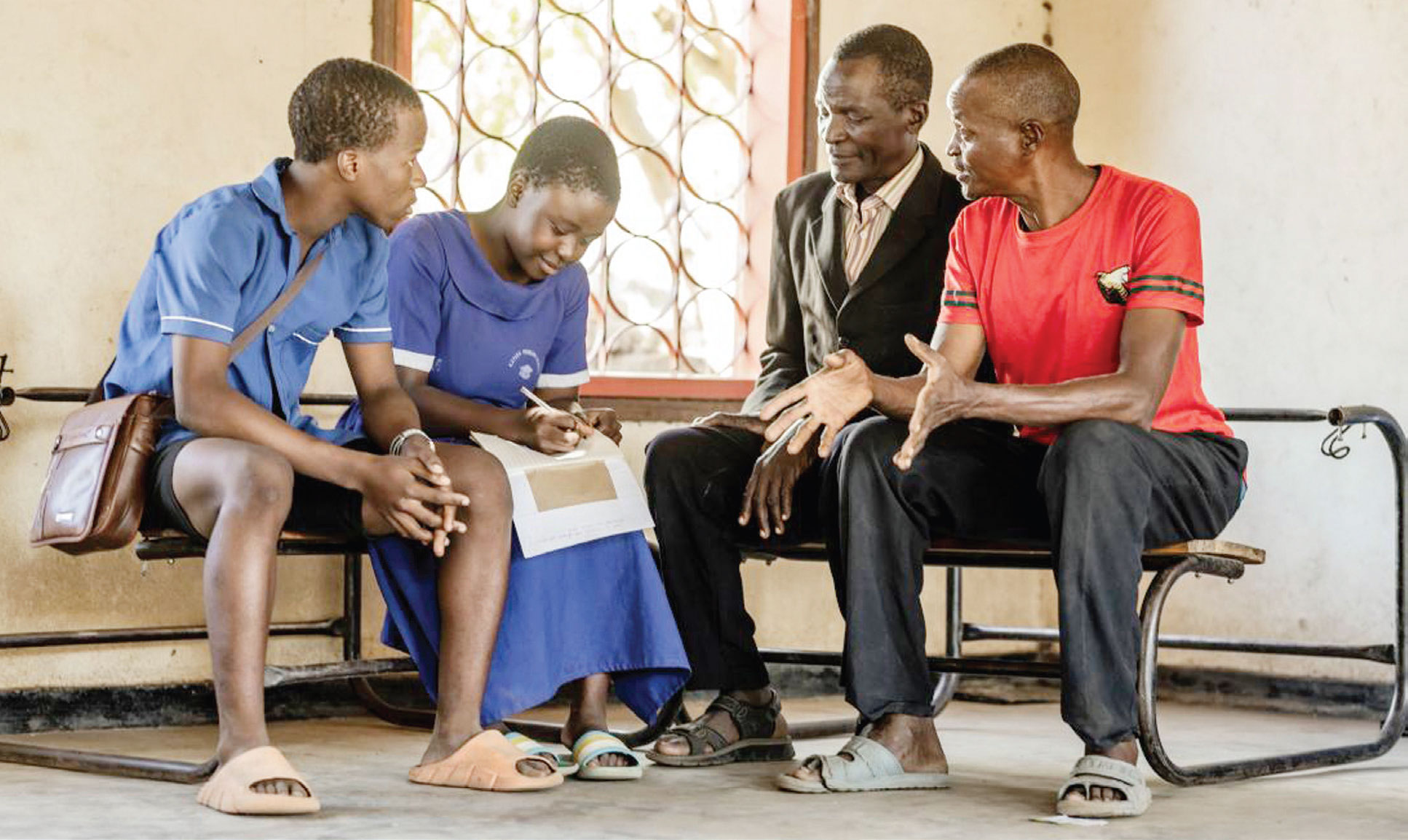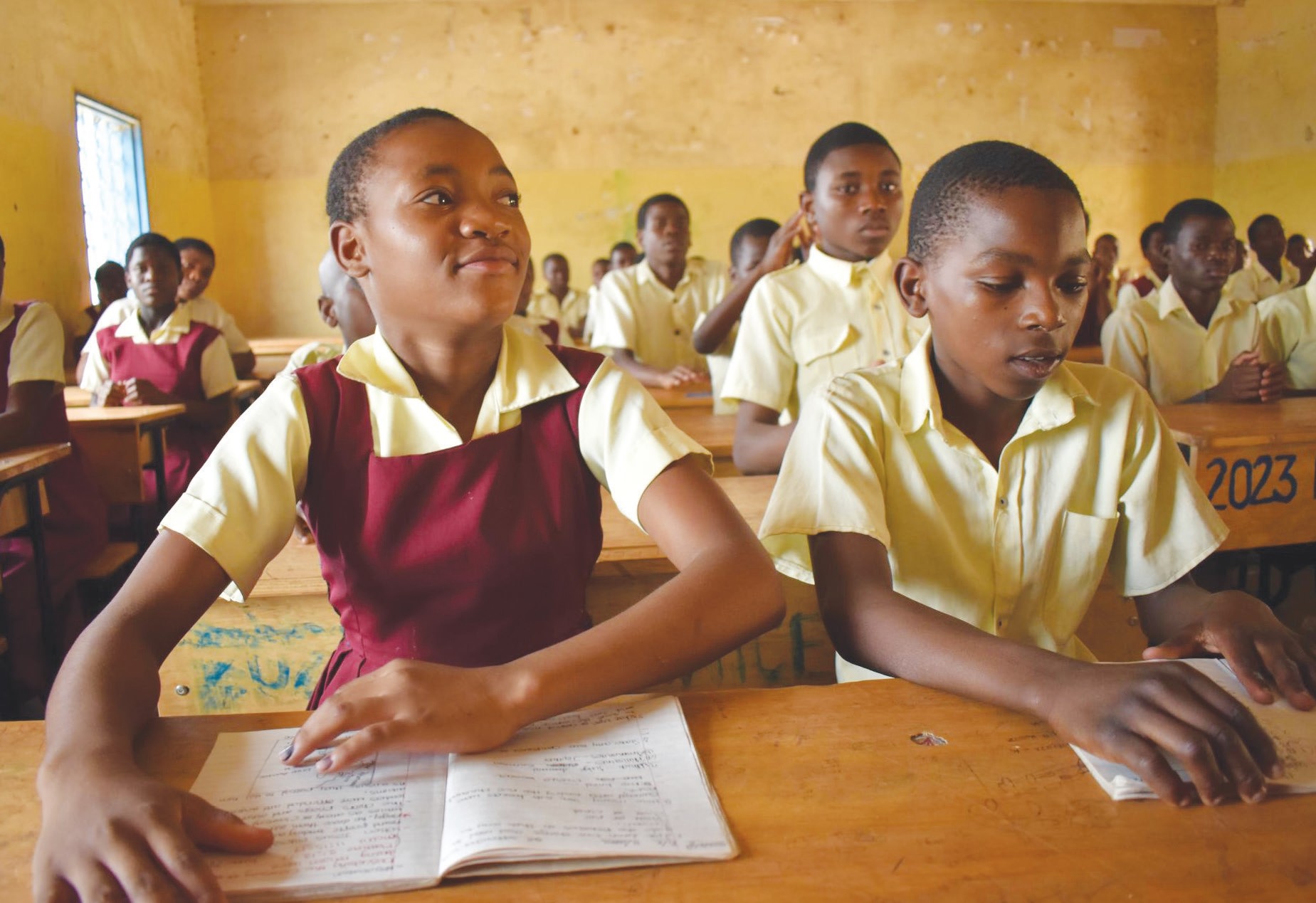Debating compulsory education

Section 13 of Malawi’s revised Education Act (2012) says that provision of primary education in government schools shall be free of tuition to all and compulsory for every child below eighteen years of age.
This Act builds on a number of international and legal instruments which Malawi is signatory to.
Some of them include the United Nations Declaration on Human Rights (UNDHR), the Education for All (EFA) Policy Framework and the Convention for the Rights of Children (CRC) which do provide for universal primary education and compulsory primary education.
In fact, even Section 13 (f) of the country’s Constitution obliges the State to make primary education compulsory and free to all citizens of Malawi.
With a number of out-of-school children pegged at 500 000, compulsory education may be an opportunity for disadvantaged children such as orphans, girls, children from poor families and remote locations, and children with disabilities to have access to basic education.
Unlike free primary school education, compulsory education will ensure that the future generation have basic skills to contribute towards development and reduce poverty.
However, the challenge that free primary education exerted on the delivery of quality education makes compulsory education’s success questionable.
For instance, the recent Education for All Global Monitoring Report published by Unesco shows that in Malawi, very few children are learning the basics whether rich or poor, but the reasons for this vary.
“For the poor, the main reason is that only 41 percent make it to the end of the primary cycle. The rich are more likely to be in school, but the quality of education is so low that 72 percent are in school but not achieving the minimum learning standards.
“This leaves only three percent of the poor and eight percent of the rich both completing primary education and achieving the basic learning standards,” reads the report.
The report adds that poor quality education is leaving a legacy of illiteracy more widespread than previously believed. On current trends, the report projects that the richest boys in sub-Saharan Africa will achieve universal primary completion in 2021, but the poorest girls will not catch up until 2086.
“In Malawi,” continues the report, “the richest boys will all be completing primary education by 2018, but the poorest girls will not catch up until 2073. In addition, it will take until the next century (2114) for all girls from the poorest families in Malawi to finish lower secondary school.”
Against such a background, the big question is: What can be done to ensure that compulsory primary education in Malawi should be a success?
Renowned education expert Limbani Nsapato argues that policy makers need to do proper analysis and come up with a plan, budget and road map for implementation.
“Part of the analysis will include the amount of resources needed to ensure that everyone has access to basic education, and the expectations and roles of various stakeholders are articulated.
“Among others, there will be need to invest in infrastructure in terms of classrooms, schools, teachers’ houses, toilets and others. There will also be need to train and recruit adequate teachers so quality concerns can be tackled,” he says.
Executive director for Civil Society Education Coalition (Cseq) Benedicto Kondowe says in order to meaningfully implement compulsory education; Malawi needs a mix of strategies and drawing lessons from successes within the region, and subject the same to our own context.
“Implementation of the compulsory education needs to start with awareness raising and education of parents and schoolchildren about the benefits of going to school as well as legal obligations to do so.
“In order to reach out in the most effective way, the ministry should use the existing structures such as traditional authorities, mother groups, parent and teacher associations (PTAs), community-based organisations (CBOs) and non-governmental organisations (NGOs) to encourage all school-going children to attend school,” he says.
Nsapato agrees with this point of view.
“There will also be need to prepare communities for compulsory education through civil education as well as supporting community-based structure, school committees and PTAs on how they can work with other actors at community and school level to enforce compulsory education,” he says.
Nsapato adds that government and its stakeholders in education need to invest more in education.
“Government will need to spend more and ensure it adheres to international standards of allocating a minimum of six percent of the GDP or 20 percent of the national budget to education. At least half of this money should be devoted to basic education, and especially support compulsory education,” he says.
James Chirwa, a retired teacher who also served as a primary education adviser for Shire Highlands Education Division (Shed), says another important factor is inspection, monitoring and evaluation which needs to be done consistently in order to address any challenges to implementing the policy.
“NGOs will also need to step up their advocacy, policy monitoring, and capacity building of communities to ensure that conditions for implementing compulsory education are met to the satisfaction of all parties involved,” says Chirwa who spent 38 years in the education sector.
Equally important is the motivation of teachers, according to the Unesco report.
And Kondowe warns that there is little point in insisting on compulsory education if that education does not result in the child’s learning outcomes.
“The introduction of compulsory education should come hand in hand with an increased effort to improve its quality,” says Kondowe.






I think the gvt should not rash to implement things that they can not manage to run. We hv many loop holes in our gvt.